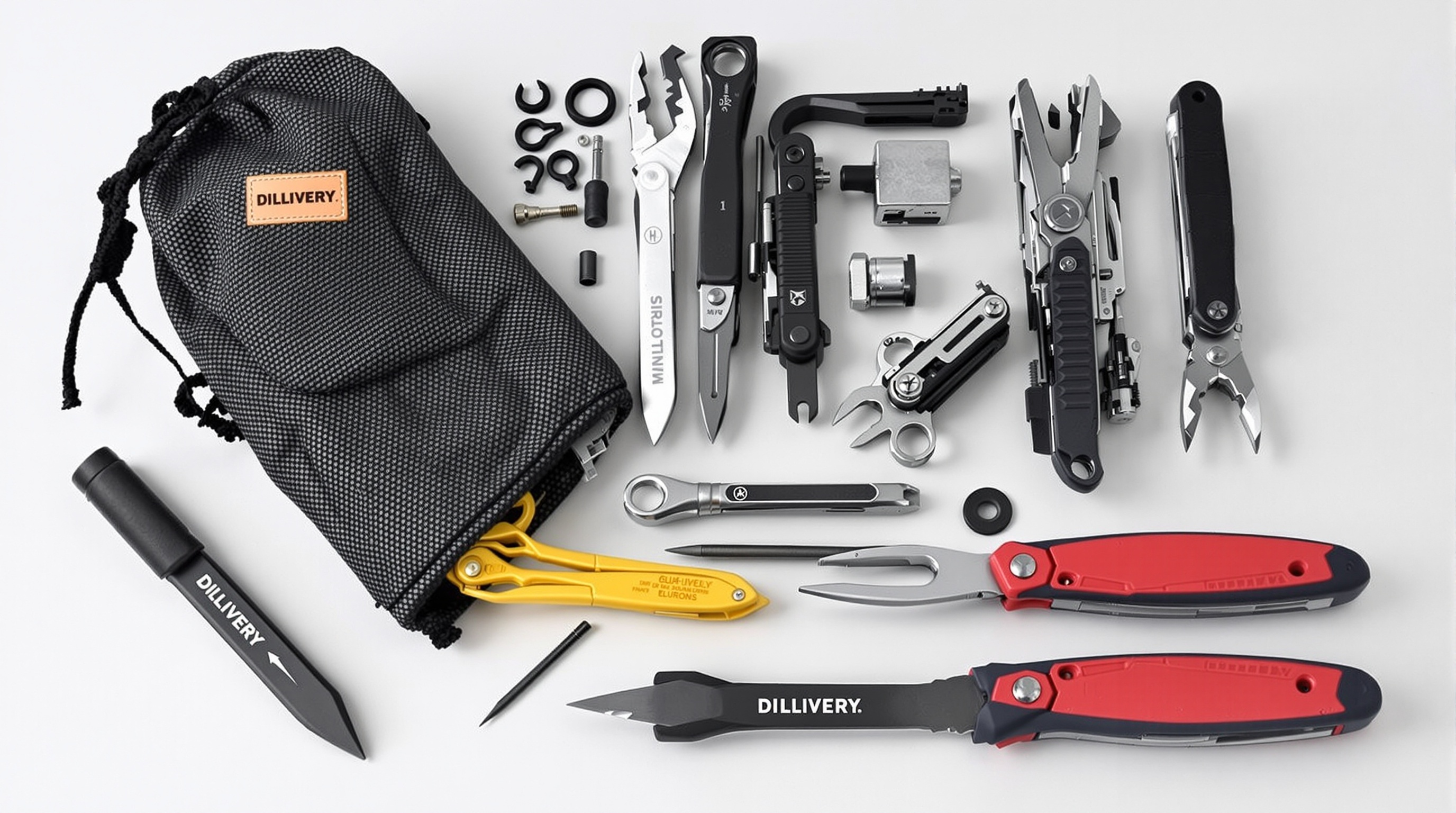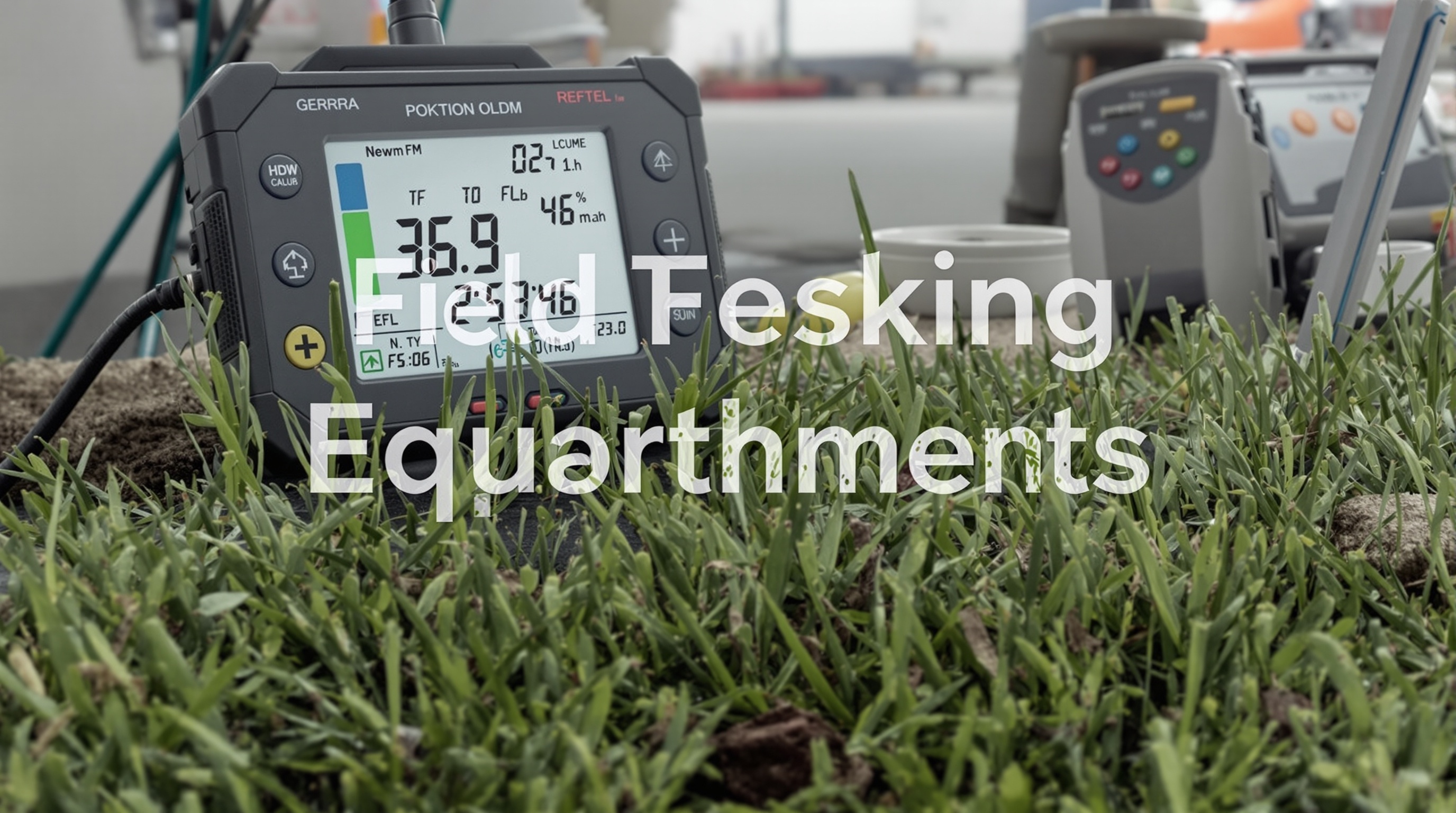Essential Self-Reliance Techniques for a Resilient Life
Discover practical self-reliance techniques for personal freedom and sustainable living. Learn key skills in mindset, home systems, finances, and more for true independence.

Mastering self-reliance techniques is the key to personal freedom, resilience, and long-term independence. This comprehensive guide breaks down vital skills—from emotional regulation to technical know-how—that empower you to live confidently and sustainably, no matter the circumstances. Whether you’re seeking autonomy in daily life or preparing for the unexpected, building core competencies in financial literacy, critical thinking, and home systems management forms the foundation of true self-sufficiency.
Foundation Skills for Self-Reliance
Self-reliance is built upon a foundation of core competencies that support autonomy, resilience, and adaptability in everyday life. These foundational skills span mental, physical, and practical domains, forming the essential base for long-term personal independence.
Critical Thinking and Independent Decision-Making
At the heart of self-reliance is the ability to think independently. Cultivating critical thinking involves analyzing situations objectively, questioning assumptions, and making informed decisions without undue influence from others. This skill empowers individuals to navigate complex scenarios, evaluate options, and take responsibility for outcomes—key traits of a self-reliant person.
Key practices for developing critical thinking include:
- Engaging in reflective journaling
- Practicing Socratic questioning
- Evaluating sources of information for credibility
- Making pros and cons lists before major decisions
Emotional Regulation and Resilience
Emotional self-reliance enables individuals to manage their inner world without excessive dependence on external validation or support. This involves recognizing emotions, processing them constructively, and bouncing back from adversity.
Foundational practices for emotional resilience include:
- Mindfulness and meditation
- Cognitive reframing techniques
- Stress management strategies
- Establishing a healthy emotional support system while maintaining independence
Basic Financial Literacy
Financial self-reliance is a cornerstone of overall autonomy. Understanding how to manage money, budget effectively, and make wise financial decisions is crucial for sustaining independence and preparing for emergencies.
Essential financial skills include:
- Tracking income and expenses
- Understanding credit, debt, and interest
- Creating and maintaining a personal budget
- Building and managing an emergency fund
Time Management and Organization
Being self-reliant means having the ability to plan and structure one’s time efficiently. Time management ensures that goals are met, responsibilities are handled, and personal growth is prioritized.
Foundational time management techniques include:
- Prioritizing tasks using systems like the Eisenhower Matrix
- Setting SMART goals
- Using planners or digital tools for scheduling
- Developing consistent daily routines
Communication and Interpersonal Skills
While self-reliance emphasizes independence, effective communication is essential for navigating relationships, setting boundaries, and collaborating when necessary. Being assertive, empathetic, and clear in communication supports both autonomy and healthy interactions.
Core communication skills for self-reliance include:
- Active listening
- Assertiveness training
- Conflict resolution strategies
- Boundary setting with clarity and confidence
Problem-Solving and Adaptability
Self-reliant individuals are adept at identifying challenges and crafting solutions. They view problems as opportunities for growth and are flexible in the face of change.
To enhance problem-solving and adaptability:
- Practice scenario-based thinking
- Learn from past mistakes and successes
- Develop contingency planning skills
- Embrace change as a constant and prepare accordingly
Self-Motivation and Discipline
The ability to act without external prompting is a defining trait of self-reliance. Self-motivation drives progress, while discipline ensures consistency and follow-through, even in the absence of immediate rewards.
Ways to strengthen these skills include:
- Setting intrinsic goals based on personal values
- Establishing accountability systems
- Creating habits through repetition and reinforcement
- Celebrating small milestones to maintain momentum
Foundational Physical Skills
Even basic physical competencies contribute to a self-reliant life. This includes being able to care for one’s health, perform minor repairs, and respond to emergencies.
Basic physical self-reliance skills involve:
- Cooking simple, nutritious meals
- Performing first aid and CPR
- Maintaining personal hygiene and health
- Managing minor home or vehicle repairs
Resourcefulness and Practical Knowledge
A self-reliant person knows how to make the most of available resources. This includes repurposing materials, improvising solutions, and seeking knowledge actively.
Key elements of practical resourcefulness:
- Learning DIY skills such as sewing, gardening, or minor construction
- Gaining familiarity with common tools and their uses
- Developing a habit of researching and learning new skills
- Practicing minimalism and efficient resource use
Self-Education and Lifelong Learning
Self-reliance is a continuous journey, and lifelong learning is essential to keep evolving. Cultivating the habit of self-directed learning enables individuals to adapt to new challenges and remain equipped in an ever-changing world.
Foundational learning practices include:
- Reading regularly on diverse topics
- Taking online or community courses
- Engaging in skill-based hobbies
- Reflecting on experiences to extract lessons
By mastering these foundation skills, individuals set the stage for deeper self-sufficiency, personal growth, and a resilient, independent lifestyle. These competencies act as the building blocks for more advanced self-reliance techniques in every aspect of life.
Technical Self-Reliance Skills
Developing technical self-reliance skills is a cornerstone of living independently and with confidence. These skills enable individuals to address practical challenges, manage resources, and maintain essential systems without needing constant outside assistance. They span a wide range of disciplines that are particularly useful in both everyday life and emergency situations.
Basic Building and Carpentry
Understanding how to build, repair, and maintain structures is a foundational aspect of technical self-reliance. Skills in carpentry—such as measuring, cutting, framing, and joining wood—allow individuals to perform tasks ranging from constructing simple furniture to repairing a shed or even building small shelters. Familiarity with hand and power tools, as well as reading basic blueprints or construction plans, enhances one’s ability to carry out these projects safely and effectively.
Plumbing and Electrical Know-How
Basic plumbing knowledge, such as fixing leaks, unclogging drains, and installing simple fixtures, can prevent costly repairs and emergency service calls. Similarly, understanding how to safely work with electrical systems—such as replacing outlets, installing light fixtures, and troubleshooting basic wiring issues—contributes significantly to household independence. While more complex tasks should be left to professionals, knowing the fundamentals can help mitigate risks and problems quickly.
Tool Maintenance and Repair
A self-reliant individual must know how to maintain and repair the tools they depend on. This includes cleaning, sharpening, lubricating, and safely storing hand and power tools to extend their lifespan. Being able to diagnose and fix minor tool malfunctions not only ensures that work continues uninterrupted but also saves money in the long run.
Mechanical and Equipment Troubleshooting
Whether it’s a generator, a lawnmower, or a bicycle, understanding how mechanical systems work—and how to fix them when they don’t—adds a powerful layer of independence. Basic mechanical knowledge includes recognizing common issues, performing routine maintenance, and making minor repairs. These skills are especially valuable in rural or off-grid settings where professional help may not be immediately available.
Home Systems Management
Managing essential home systems such as heating, ventilation, air conditioning (HVAC), water filtration, and alternative energy setups (like solar panels) is becoming increasingly important for those seeking a self-reliant lifestyle. Learning how these systems operate, understanding regular maintenance requirements, and knowing how to troubleshoot potential issues are key components of technical self-reliance.
Energy Systems and Alternative Power
With rising interest in sustainable living, knowing how to install and maintain alternative energy sources—like solar panels, battery storage systems, and small wind turbines—empowers individuals to reduce dependence on public utilities. This knowledge includes understanding energy output, system layout, battery maintenance, and safe electrical integration with existing infrastructure.
DIY Skills and Fabrication
Being able to create, modify, or repair items using available resources is essential. DIY skills include woodworking, metalworking, welding, and even 3D printing. Fabrication capabilities allow for the production of custom tools, parts, and structures, which can be particularly useful in remote or resource-limited environments.
Water Systems and Management
Safe and reliable water access is fundamental to self-reliant living. Skills in rainwater harvesting, filtration, well maintenance, and water storage ensure that clean water is always available. Understanding water purification methods, such as boiling, chemical treatment, and filtration, adds a critical layer of preparedness, especially in emergencies.
Waste Management and Sanitation
Proper disposal of waste and maintenance of sanitation systems are vital for health and hygiene. Technical self-reliance includes knowledge of composting toilets, greywater recycling, septic system maintenance, and environmentally safe waste disposal practices. These skills are especially beneficial in off-grid or homesteading scenarios.
Vehicle Maintenance
For many, transportation independence is a key aspect of self-reliance. Being able to perform basic vehicle maintenance—such as oil changes, tire rotation, brake inspection, and battery replacement—helps avoid breakdowns and reduces reliance on mechanics. Understanding how to troubleshoot common issues can also be invaluable during travel or emergencies.
Digital and Technological Literacy
In the modern age, technical self-reliance extends into digital competencies. Skills such as basic computer troubleshooting, software installation, data backup, and cybersecurity awareness are increasingly essential. For those living semi-remote or fully off-grid, using technology to monitor systems (like solar panels or water usage) or communicate effectively can be a crucial advantage.
By mastering technical self-reliance skills, individuals gain the capability to live more autonomously, solve problems as they arise, and reduce their dependence on external systems and services. These competencies also foster confidence and resilience, qualities that are indispensable in both everyday life and times of crisis.
Mental and Emotional Self-Reliance
Developing mental and emotional self-reliance is foundational to achieving personal independence. It involves cultivating the ability to think independently, manage emotions effectively, and make confident decisions without excessive reliance on external validation or support. These inner capacities form the psychological core of self-reliant living.
Independent Thinking
Independent thinking allows individuals to form their own opinions, solve problems creatively, and resist societal pressures. It’s a critical aspect of self-reliance because it empowers people to assess situations objectively and act in alignment with their values and goals. Cultivating this skill involves questioning assumptions, engaging in critical thinking, and developing intellectual curiosity.
Practical techniques to foster independent thinking include:
- Regular reflection and journaling
- Exposure to diverse viewpoints
- Limiting passive consumption of media
- Practicing decision-making in low-risk scenarios
Emotional Resilience
Emotional resilience is the capacity to manage stress, recover from setbacks, and remain calm under pressure. Building emotional resilience helps individuals remain stable and resourceful, especially when facing uncertainty or adversity—both common situations on the path to self-reliance.
Strategies to build emotional resilience include:
- Mindfulness and meditation practices
- Developing a growth mindset
- Embracing failure as a learning opportunity
- Strengthening self-compassion and emotional regulation
Confidence in Decision-Making
Self-reliance requires the ability to make firm decisions and stand by them. People who struggle with decision-making often feel dependent on others for direction. Building confidence in this area involves both practice and trust in one's reasoning abilities.
To strengthen decision-making skills:
- Start with small, everyday choices to build momentum
- Reflect on past decisions to understand outcomes
- Use structured approaches like pros-and-cons lists
- Accept that not all decisions will be perfect—and that’s okay
Trust in Personal Judgment
Trusting your own judgment is an advanced aspect of self-reliance. It reflects a deep sense of self-awareness and assurance that you know what’s best for your own life. This trust strengthens over time as individuals accumulate experience, learn from failure, and grow more attuned to their inner voice.
Ways to develop trust in your judgment include:
- Regular self-assessment and feedback analysis
- Setting and achieving personal goals
- Learning from mentors while maintaining autonomy
- Reducing the need for external approval
Emotional Independence
Emotional independence means not relying on others for constant reassurance, validation, or emotional stability. It doesn’t imply isolation, but rather the ability to meet your own emotional needs. This allows for healthier, more balanced relationships and a greater sense of inner peace.
Key practices for emotional independence:
- Identifying personal emotional triggers
- Developing healthy coping mechanisms
- Cultivating internal sources of motivation and self-worth
- Seeking connection from a place of wholeness, not need
Mental and emotional self-reliance is not an innate trait—it is a set of learnable skills and mindsets that can be developed with intention and consistency. By prioritizing these aspects, individuals build the internal foundation necessary for long-term self-sufficiency and fulfillment.
Creating an Action Plan
A structured action plan is crucial for turning self-reliance goals into daily habits. Begin by identifying specific areas in your life where you seek greater independence—this could include finances, emotional well-being, or practical life skills. Break each goal into smaller, manageable tasks with realistic deadlines. Tools like bullet journals, digital planners, or habit-tracking apps can help maintain consistency. Prioritize tasks based on urgency and impact, ensuring that foundational skills are developed before more advanced ones. For example, mastering basic budgeting should precede investing.
Measuring Progress
Regularly assessing your progress not only keeps you motivated but also highlights areas needing adjustment. Set clear benchmarks for each goal, such as saving a specific amount of money within three months or learning how to prepare five meals from scratch. Use self-assessment checklists, progress journals, or accountability partners to track your development. Periodic reflection—monthly or quarterly—will help determine whether you're moving closer to your self-reliance objectives and allow for timely recalibration.
Overcoming Common Challenges
Challenges such as procrastination, lack of resources, or self-doubt often hinder progress toward self-reliance. Combat procrastination by breaking tasks into smaller steps and using time-blocking techniques. When resources are limited, explore community options like public libraries, local workshops, or online learning platforms that offer free or affordable training in practical skills. To address self-doubt, reinforce your confidence through positive self-talk and celebrate small victories regularly. Building resilience through mindfulness or journaling can also help in navigating setbacks.
Building Support Systems
While self-reliance centers on personal independence, having a supportive network can enhance your journey. Surround yourself with individuals who encourage growth, such as mentors, like-minded peers, or online communities focused on skill-building and self-improvement. These networks can provide valuable feedback, share resources, and keep you accountable. Additionally, engaging in reciprocal support—where you both give and receive help—fosters mutual growth and demonstrates that self-reliance doesn’t mean complete isolation.
Long-Term Sustainability
Maintaining self-reliance over time requires adaptability and ongoing learning. Continually update your skills to stay relevant in changing environments—this includes technological literacy, financial market awareness, and evolving health practices. Integrate regular check-ins into your routine to reassess goals and strategies. Establishing rituals such as weekly reviews or annual life audits can help you remain aligned with your values and long-term vision. Moreover, practicing gratitude and recognizing your progress nurtures a sustainable mindset focused on growth and resilience.
Long-Term Sustainability Plan
Establishing self-reliance is not a one-time achievement but an evolving process that requires consistent effort and foresight. A long-term sustainability plan ensures that personal independence is maintained and strengthened over time. This plan should encompass continuous learning, resource renewal, lifestyle adaptability, and the integration of resilient systems across various areas of life.
Continuous Skill Development
To sustain self-reliance, one must adopt a mindset of lifelong learning. As technology advances and societal conditions shift, the skills that ensure independence today may not be sufficient tomorrow. Commit to regularly updating your competencies in areas such as:
- Financial literacy and market adaptability
- Home maintenance and repair
- Emergency preparedness
- Digital proficiency and remote work capabilities
- Food cultivation and preservation
Engaging in workshops, online courses, and community learning opportunities helps reinforce and expand your self-reliant skill set.
Resource Renewal and Management
A sustainable self-reliant lifestyle depends on the wise use and replenishment of resources. This includes:
- Practicing crop rotation and composting in home gardening to maintain soil health
- Implementing water conservation systems such as rainwater harvesting and greywater reuse
- Using renewable energy solutions like solar panels for energy independence
- Maintaining tools and equipment to extend their lifespan and reduce the need for replacement
Regular audits of household resource usage and sustainability practices help identify areas for improvement and innovation.
Building Resilient Systems
Resilience is at the heart of sustainability. Establish systems that can adapt to changing circumstances and reduce vulnerability to external disruptions. Examples include:
- Diversifying income sources to protect against job loss or economic downturns
- Establishing home-based food systems, such as indoor gardening and small livestock
- Creating a detailed emergency plan that includes communication, evacuation, and resource stockpiles
- Developing strong community ties and mutual aid networks for support and shared knowledge
Redundancy in critical systems—such as having multiple methods for cooking, heating, and communication—adds layers of security.
Emotional and Mental Sustainability
Mental fortitude plays a critical role in sustaining long-term independence. Practices such as journaling, mindfulness, and regular reflection support emotional resilience. Set aside time to evaluate your goals, celebrate progress, and adjust your plans as needed. Building a self-reliant life requires patience, adaptability, and the emotional strength to remain motivated during setbacks.
Periodic Review and Adaptation
A long-term self-reliance plan should be revisited regularly. Schedule quarterly or annual reviews of your progress in skill development, resource management, financial stability, and personal growth. Ask:
- Have I improved or maintained my core self-reliance skills?
- Are there new risks or challenges I need to prepare for?
- What areas of my plan are no longer effective or relevant?
- How can I further reduce dependency and increase autonomy?
Adaptation ensures that your plan evolves with your circumstances and continues to serve your goals effectively.
Intergenerational Knowledge Sharing
A sustainable self-reliant lifestyle benefits from generational continuity. Teach children and younger family members the values and skills associated with independence. This not only preserves essential knowledge but also empowers future generations to build upon your foundation.
Mentorship, documentation of techniques, and collaborative projects create strong ties and ensure that self-reliance becomes a shared legacy rather than an individual pursuit.
By embedding these principles into daily life and planning for the future with intention, individuals can create a resilient, adaptable, and enduring foundation for personal independence.
Achieving self-reliance is not a destination—it’s a dynamic lifestyle built on diverse skills, adaptable systems, and an empowered mindset. By investing in critical thinking, hands-on techniques, emotional resilience, and continuous learning, you can build a life of confidence and autonomy. Start today by identifying your weakest area, creating a simple action plan, and committing to lifelong growth. Self-reliance begins with one step—take it now.




